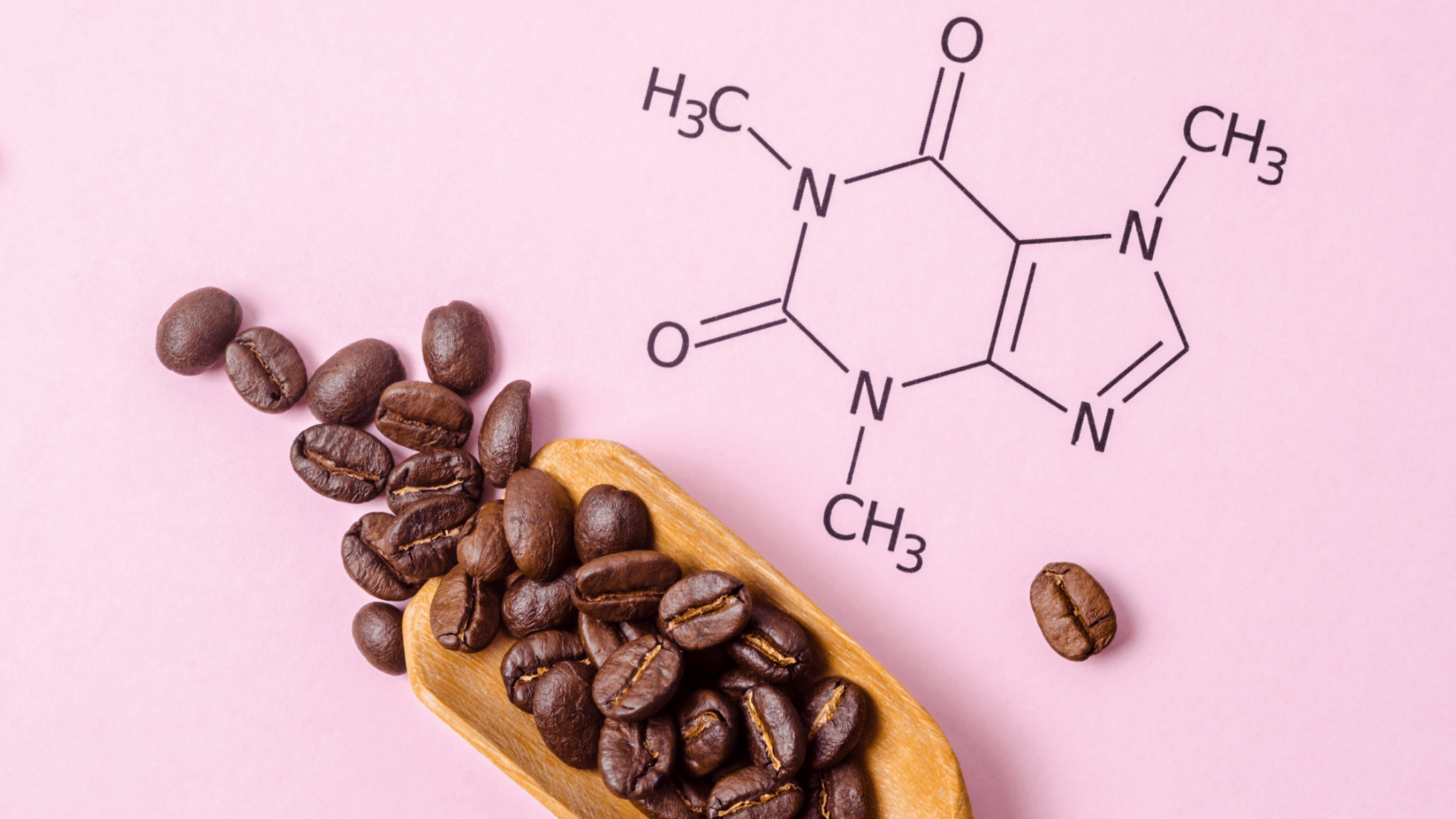If you’re like me, the aroma of freshly brewed coffee is the quintessential start to your day, a ritual steeped in comfort and a promise of that much-needed energy boost. The science backs us up, highlighting coffee’s myriad benefits, from sharpening our brains to keeping type 2 diabetes at bay, thanks to its antioxidant and anti-inflammatory prowess.
But let’s dive deeper, beyond the surface, into the intricate world of hormones, where coffee plays a complex role. Our bodies react to caffeine uniquely, influenced by our health, genetics, and even our ethnic backgrounds. Ever noticed how you might be buzzing after just a couple of cups, while your friend can down a whole pot and still take a snooze? That’s the caffeine conundrum – it affects us all differently, especially when it comes to our hormonal landscape.

Navigating the Caffeine Conundrum: Hormonal Highs and Lows
Let’s get into the nitty-gritty of how caffeine flirts with our hormones. While the dance is intricate, understanding the steps can empower you to make choices that harmonize with your health.
Adenosine and Alertness: Caffeine’s claim to fame is its ability to keep you feeling alert, blocking adenosine, a neurotransmitter that cues your body to rest. But the sensitivity to caffeine’s energizing effects varies widely among individuals, influenced by metabolism rates and even life stages. That same cup of joe might feel differently depending on whether you’re stressed, burned out, or feeling balanced.
Estrogen’s Ebb and Flow: Ladies, this one’s particularly for us. Caffeine can sway our estrogen levels, but the rhythm varies across ethnicities. For some, it might lower estrogen, while for others, it could lead to a surge. If you’re juggling estrogen dominance, it’s worth considering how caffeine fits into your hormonal harmony.
Thyroid Considerations: The thyroid, our metabolic maestro, doesn’t have a clear-cut relationship with caffeine. While outdated studies hinted at a possible interference with thyroid hormones, the current consensus is still brewing. Yet, for those navigating thyroid challenges, moderation in caffeine consumption is key, especially regarding medication absorption.
Cortisol and the Stress Symphony: Caffeine can amplify cortisol, our stress hormone, potentially leading to a state of high alert when we’re already juggling life’s pressures. It’s like adding fuel to the fire of chronic stress, which can disrupt our adrenal harmony and throw our hormones out of tune.
Progesterone and the Stress Connection: The story between caffeine and progesterone is less about direct impact and more about the stress storyline. Chronic stress, fueled by caffeine, can signal our bodies to downshift on progesterone production, a move that makes evolutionary sense but can leave us feeling out of balance.
Testosterone Tune Up: While the research is still unfolding, caffeine’s impact on testosterone appears to be a mixed bag, with potential differences in response between men and women. What’s clear is that our hormonal responses to caffeine are as unique as we are. With that said, the majority of the studies on coffee consumption and women do point to the fact that women who consume 2 cups of coffee or more a day are likely to have lower testosterone levels than those who drank less.

The Hormone-Caffeine Connection: Delving Deeper into Specific Conditions
PCOS and Your Cup of Joe: For my warriors battling Polycystic Ovary Syndrome (PCOS), the caffeine puzzle gets a bit more complex. While the direct impact on testosterone levels isn’t crystal clear, caffeine may influence other facets of PCOS, such as insulin sensitivity and stress responses. If you’re navigating PCOS, tuning into your body’s reaction to coffee can guide whether it’s a friend or foe in managing your symptoms.
Thyroid Health: To Sip or Skip?: The thyroid and caffeine have a delicate relationship. If you’re on thyroid medication, it’s crucial to understand how caffeine might affect absorption, potentially dimming your medication’s effectiveness. Additionally, for those with autoimmune thyroid conditions, like Hashimoto’s, coffee could stir up gutt sensitivities, adding another layer to consider in your wellness strategy.

Caffeine and Menopause: Navigating the Transition
Menopause is a significant phase in a woman’s life marked by the end of menstrual cycles and notable hormonal shifts, particularly reductions in estrogen levels. The interplay between caffeine and menopause warrants special attention, as the symptoms of menopause can be influenced by dietary factors, including caffeine consumption.
Impact on Menopausal Symptoms: For some women, caffeine may exacerbate common menopausal symptoms such as hot flashes, night sweats, and sleep disturbances. Caffeine’s stimulatory effect can interfere with sleep quality, making it more challenging for menopausal women to find restful sleep, which is already a common issue during this life stage due to hormonal changes.
Bone Health Considerations: Menopause brings an increased risk of osteoporosis, partly due to the decrease in estrogen, a hormone that helps protect bone density. Some research suggests that high caffeine intake may be linked to decreased bone density, as caffeine can interfere with calcium and magnesium absorption in the body. For menopausal women, ensuring adequate mineral intake and possibly moderating caffeine consumption are important steps for supporting bone health.
Heart Health and Caffeine: Post-menopausal women face a higher risk of developing cardiovascular diseases, partly due to the protective effects of estrogen waning. While moderate coffee consumption has been associated with a lower risk of heart disease in the general population, individual tolerance and the effects of caffeine on heart health can vary, especially during menopause. Paying attention to how caffeine affects your body, including any changes in heart rate or blood pressure, is advisable.
Strategies for Menopausal Women:
- Monitor Symptoms: Keeping a diary of caffeine intake and menopausal symptoms can help identify any correlations between the two, enabling more informed dietary choices.
- Moderation is Key: If you find caffeine exacerbates your menopausal symptoms, reducing your intake may help manage these symptoms more effectively.
- Focus on Hydration: Prioritize water and other non-caffeinated beverages to stay hydrated, as hydration is especially important during menopause for overall health.
- Consider Alternatives: If caffeine impacts your sleep or other aspects of menopause adversely, exploring caffeine-free or low caffiene alternatives like herbal teas, mushroom coffee may provide a comforting and healthful substitute.

In Defense of Coffee
Despite the cautionary tales, it’s not all doom and gloom in the land of coffee. This beloved beverage carries its share of health halos, especially when it comes to cognitive function and chronic disease prevention.
Brain Health Benefits: The anti-inflammatory and antioxidant-rich profile of coffee offers a protective embrace for our brains. Research links moderate coffee consumption with a lowered risk of cognitive decline, Alzheimer’s, and Parkinson’s diseases, highlighting its role in brain health and longevity.
A Toast to Healthy Habits: If coffee still holds a special place in your heart (and cup), there are ways to enjoy it mindfully, ensuring it supports rather than sabotages your health:
Go Organic: Opting for organic coffee can reduce your exposure to pesticides and support your overall health.
Fresh is Best: Grinding your own coffee beans maximizes flavor and antioxidant content, elevating your coffee experience.
Cut the Sweeteners: Keep your coffee’s health benefits intact by skipping added sugars and opting for natural creamers instead.
Moderation Matters: Limiting your intake can help manage caffeine’s impact on your stress and hormone levels. Fuel Up with Breakfast: Pairing your morning brew with a nutritious breakfast can stabilize your energy and support hormonal balance throughout the day. And if you can manage to get in 20 ounces of water and some protein prior to your coffee, it can mitigate the negative effects.

Your Personal Coffee Journey: Listening to Your Body
Experimenting with less coffee or adjusting your intake based on how you feel can provide insights into what works best for your body. Remember, wellness is not one-size-fits-all, and tuning into your body’s signals is key to finding your balance.
Whether you’re savoring your morning cup or exploring other energizing rituals, the goal is to support your health and well-being in a way that feels right for you. Here’s to finding your perfect blend of vitality, wellness, and, yes, maybe even a little caffeine.






